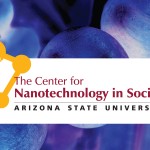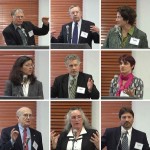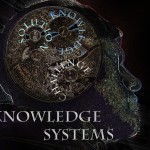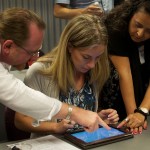Research Complex Socio-technical Systems
Today’s societies are high-tech, and technology increasingly weaves throughout our lives. CSPO research seeks to understand what it means for social relationships, values, identities, and organizations to inhabit advanced technological societies, how societies arrange themselves around large, complex technological systems, and the ways that human lives and livelihoods come to be defined by and in these systems. Building on our insights into and evaluations of the human dimensions and outcomes of socio-technological systems, we also aim to develop new approaches to the governance of systems change, new visions for transforming systems toward improved societal outcomes, and new insights into the possibilities and limits of democracy in an age of rapid scientific and technological change.
-
Shared Principles for Community Collaboration in West Calcasieu Parish

Shared Principles for Community Collaboration (Shared Principles) is a community engagement process designed to help project developers and funders collaborate with community members on local energy projects. The Consortium for Science, Policy & Outcomes at Arizona State University (CSPO) is…
-
Establishing a Sociotechnical Approach to Fusion Energy Development

Project Objectives & Background: No energy technology is perfectly equitable, and the deployment of any new technology – energy related or otherwise – entails a multidimensional, differential, and dynamic distribution of benefits and burdens in society. As such, this project…
-
Arizona Consortium for Community Engagement, Innovation, and Learning on Consent-Based Siting (CCEIL-AZ)

Project Objectives: This two-year project seeks to build a participatory engagement framework to potentially inform a consent-based siting process for an interim facility for high-level nuclear waste. It will build a network of partner organization across Arizona, including the Arizona…
-
PGET Forum Materials
Background The rapid development of human genome editing technologies has raised significant questions about these tools’ potential and proper applications and societal impacts; as well as broader practical and philosophical questions of authority, governance, and future-making around technological innovation in…
-
Carbon Dioxide Removal (CDR) Technology Public Forums and Application to Governance Frameworks

Current climate projections suggest that traditional sustainability efforts alone will not be sufficient for achieving the international community’s ambition of staying below a 2°C increase in global temperature in the coming decades; as such, utilizing drastic, novel approaches may also…
-
Future-Focused Deliberations on Human Genome Editing
The rapid development of human genome editing technologies has raised significant questions about these tools’ potential and proper applications and societal impacts; as well as broader practical and philosophical questions of authority, governance, and future-making around technological innovation in society.…
-
Global Citizens’ Assembly on Genome Editing
The Centre for Deliberative Democracy and Global Governance at the University of Canberra is convening the first Global Citizens’ Assembly on Genome Editing. The aim of the citizens’ assembly is to bring together one hundred participants from different countries for…
-
Public Deliberations on Human Genome Editing

Scientific advances have opened the door to new possibilities for human genome editing. Powerful new gene-editing tools such as CRISPR-Cas9 hold promise of disease treatment and prevention. Genetic alterations made by these tools, however, could be passed on to future…
-
Project Partners
North American Partner Coalition (as of September 2019) Steering Committee Consortium for Science, Policy & Outcomes Missions Publiques Charles Koch Institute Museum of Science, Boston Kikim Media with funding from the Sloan Foundation Strategic Partners American Public Transportation Association US…
-
FAQ
How does the forum work? Community members apply online. About 100 individuals are selected to represent the demographic diversity of their region and sent educational information. On the day of the forum, participants sit at tables in small groups with…
-
Forum Sites
Our Driverless Futures in bringing together the voices of hundred of individuals across cities in North America, Europe, and Asia. International Sites Austria Canada Croatia France Germany Portugal Singapore United Kingdom United States U.S. Cities Boston – May…
-
Forum Materials
Public technology assessments are designed as informed public deliberations. In order to promote a thoughtful, informed deliberation, participants were briefed both prior to and during the forum on the facts, issues, and areas of uncertainty related to solar radiation management.…
-
Our Driverless Futures: Community Forums on Automated Mobility

As they move from test tracks to city streets, automated vehicles promise to revolutionize mobility and transform communities in ways large and small. Will members of the public help drive this transformation? Planning for this driverless revolution requires meaningful engagement…
-
Frequently Asked Questions
CSPO’s project to explore democratic governance of geoengineering research involves a lot of terms and concepts with which many people are unfamiliar. Below are some useful definitions and frequently asked questions about this project: What is geoengineering? What is solar…
-
Exploring Democratic Governance of Solar Geoengineering Research

International efforts to address climate change have focused on reducing the amount of warming greenhouse gases emitted into the atmosphere, or mitigation. But the political and technological difficulties of achieving mitigation targets have become ever more apparent, and adapting to…
-
Climate Change Resilience: Governance and Reforms
Report authors: James Nachbaur, Irina Feygina, Elise Lipkowitz, and Darshan Karwat[1] January 30, 2017 Download the full report as a PDF here. Contents Overview Introduction Nine Ways to Apply a Governance Lens to Climate Change Resilience Communities and Local Governance…
-
Summary of the Typology
Elizabeth C. McNie, Adam Parris, Dan Sarewitz Decision makers call upon and fund science to solve urgent problems, catalyze innovation, provide information that educates stakeholders, expand alternatives, clarify choices, and aid in formulating and implementing policy decisions. But linking science…
-
A Typology for Assessing the Role of Users in Scientific Research
Elizabeth C. McNie, Adam Parris, Dan Sarewitz I Overview Decision makers call upon and fund science to help clarify and resolve many types of problems (OECD 2002; America COMPETES Act 2007; Bush 1945). They expect research to create useful information…
-
User Engagement and Scientific Research
While the concept of user-inspired research—characterized by engagement between the producers and users of scientific information—is increasingly discussed by academics and science managers, it remains largely absent from science policy decision-making processes. One reason for this appears to be the…
-
Center for Nanotechnology in Society at Arizona State University

The Center for Nanotechnology in Society at ASU (CNS-ASU) is the largest center for research, education and outreach on the societal aspects of nanotechnology in the world. CNS-ASU develops programs that integrate academic and societal concerns in order to better…
-
Understanding the Uneven Advance of Knowledge
Better science policy decisions would be facilitated by more insight into why some areas of science (and their applications) advance more rapidly than others. Besides intrinsic scientific difficulty, one would expect that political and cultural context, as well as differences…
-
Partnership for Education on Climate Change, Engineered Systems, and Society

Project Period: September 2010 – August 2013 Principal Investigator: Rachelle Hollander, National Academy of Engineering Co-Principal Investigators: Clark Miller, CSPO Deborah Johnson, University of Virginia Juan Lucena, Colorado School of Mines Paul Fontaine, Museum of Science-Boston Overview This project is…
-
Knowledge Systems Project

Project Team: Clark Miller (CSPO) Tischa Munoz-Erickson (US Forest Service) Daniel Higgins (CSPO) Chad Monfreda (CSPO) Eric Kennedy (CSPO) Dave White (Decision Center for a Desert City) The dangers of misapplied knowledge have never been starker. Over the past half-century,…
-
Energy, Ethics, Society and Policy Initiative
Began: 2008 Ended: Ongoing Clark A. Miller, EESPI director, CSPO associate director, associate professor in ASU’s School of Politics and Global Studies Full list of participants Energy, Ethics, Society and Policy Initiative (EESPI) is an interdisciplinary research community at Arizona…
-
Energy Innovation Systems From the Bottom Up: Technology Policies for Confronting Climate Change
About the project Energy Innovations Systems is a joint project of the Consortium for Science, Policy & Outcomes (CSPO) and the Clean Air Task Force (CATF), with support and cooperation from the Bipartisan Policy Center (BPC). Phase 1 began with…
-
EESE Collaborative Research: Energy Ethics in Science and Engineering Education

EESE Collaborative Research: Energy Ethics in Science and Engineering Education Project period: 2011 – 2013 Principal Investigator: Rachelle Hollander, National Academy of Engineering Principal Investigator: Clark Miller, CSPO Co-Principal Investigator: Joseph Herkert, CSPO Overview This project is funded by the…